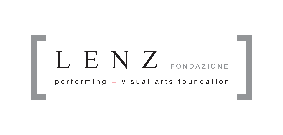
three-year period 2022-2024
Geosophie and Bestiary
For a world imagined by the theatre
Cardinal points
Lenz more and more physical and intellectual space aimed at giving shape to utopias described by terms such as sustainability, equity, accessibility, feminism, transfemminismo, interculture vs cultural appropriation, gender medicine, intersectionality, activism, regeneration; apparent utopias characterized by a goodness of action that is making reality of the imaginary concrete in places – physical, social, virtual – of community.
Dorsals TR2/4
The macro-project Geosophies and Bestiaries in the Lenz Theater is structured around four fundamental actions:
Contemporary creations
___reveal human conflicts, new philosophical and political visions for a decolonization of Western culture and for a multispecies feminism.
Enhancement of the landscape and monumental heritage
___innovative artistic and theatrical experiences under the dual visual and interpretative aspect for the rehydration of monumental complexes, museum and natural collections.
New performative concatenations
___project the horizon of the theater into the great field of sensitive alteration, for a constant remodeling and revitalizing action of the performative grammar.
Widespread dramaturgies and visual culture
___multimedia dramaturgies constitute a new field of action that does not replace theatre, but it redefines it in other possible aesthetic paradigms.
Lenz for a contemporary and inclusive performative language
A radical fidelity to the word of the text, gutted, translated and adapted for the stage, an original stage installation work site-specific, film creation and musical composition define Lenz's signature. The performative action is wedged between writing for images and the plastic creation of space, which no longer has the functional limits of the scene but tends to be a real art installation.
A strong visual sign system substantiates the design-acted of the creations: the material dramaturgy of the scene and costumes, the visual and sound technographies applied to the performance characterize Lenz's plural language. The relationship with the image is so inherent in artistic practice that it invented the neologism imagoturgy, i.e. the ad hoc creation of visual works in close connection with dramaturgical writing and stage installation.
Today the need for hybridization with other languages has become essential, by opening up to new frontiers: immersion, integration, hypermediality, interactivity, non-linear narrativity typical of the digital system. The creation of interactive theatrical environments constitutes a new field of action that does not replace live theater but redefines it in other possible aesthetic paradigms, just as in Lenz's works the musical component is a fundamental element of dramatic construction.
A highly innovative process is the installation of creations in forgotten or unusual places, priceless monuments that are difficult to access to the public because they are intended for non-tourist use or closed due to lack of resources, heritage ignored and hidden from citizenship.
Lenz has developed the need to merge with the social being in a condition of fragility, vulnerability, weakness, suffering, marginality, in search of a profound renewal of contemporary theatrical language. Since the 2000s he has been creating performative projects aimed at subjects who in the past have been excluded from artistic knowledge and processes: people with mental and intellectual disabilities, people with addictive disorders, neurodivergent adolescents, they have become sensitive protagonists of the artistic act in the full exaltation of their own identity.
The contamination between genres wants to act as a vector in bringing contemporary language closer to people who, due to social or personal conditions, often remain, as well as in supporting empowerment, female leadership and gender equality in the work team, and encourage the entry of younger generations and people with disabilities into the artistic ensemble, technical and organizational.
Holy scriptures
An aesthetic reflection on the literature of the sacred in the Christian religion will give scenic body to an interpretative project composed of theatrical creations, musical, choreographic, visuals, installative, in close connection with philosophical research, scientific, filmic, social and political, in order to activate a wide field of representation of the present.
In the 2021 Lenz started the project dedicated to the Holy Scriptures with The creation – special project commissioned by the MAECI Ministry of Foreign Affairs and International Cooperation.
In the 2022 the research on the sacred texts of Christianity will continue with Numbers, ideally referred to the Book of Numbers as the fourth book of the Old Testament. The numbering of beings, the census that lists and names bodies to be recognized, wayfarers in the desert as witnesses to the trial of pain and redemption, they will be new material for reflection/action on the human being at the time of his greatest crisis and his prospects for survival, at the end of a progressive deterioration of its living space.
In the 2023 e 2024 the arrival point of the research will be represented by theApocalypse and give it Apocalissi Gnostiche as a reflection/action on the unveiling, as a possibility of the truth of things. To then leave, having added to the eternal return of the always the same, a moment of diversity, of change, of revolution in the present of theatrical art.
Lenz by Lenz
Staging project of the works of Jakob Michael Reinhold Lenz, through four re-edition creations: Catherine Of Siena, Lenz since Georg Büchner, Shakespears Geist, The soldiers. Inspirational figure in 1985 of the birth of the artistic formation Lenz Rifrazioni (Foundation today) is a German playwright who lived at the end of the eighteenth century, theologian and man of letters who died insane in Moscow at the age of only forty. Jakob Lenz expresses a strongly anti-rhetorical vision of the crisis of Western man, anticipating the great themes of the twentieth century with a pre-Marxist sensibility: l'antimilitarismo, social injustice, violence against women, the criticism of patriarchy and the dominant male power.
Resistence
In the context of a permanent theatrical and visual project on the themes of the Resistance and the Holocaust, the Foundation annually creates a creation for the Celebrations of 25 April. TR2/4 will focus on the role and biography of the Partisan Women of the Parma Resistance, in collaboration with the Historical Institute of the Resistance and the Contemporary Age of Parma.
Bestiary _ Feminine Animal
Twelve associated artists will be invited, over the three-year period, to co-produce twelve courses that will investigate the themes of gender roles, anti-speciesism, ecofeminism, overcoming dualisms. Hybridizing philosophy, mythology, sciences and arts, the field of reference studies will be the theoretical corpus of the American philosopher Donna Haraway in the direction of the advent of chtulucene by creating Relatives based on the recognition of affinities and differences and the possibility of coexistence. The project foresees the articulation of the program in national and international residencies and productions, transdisciplinary workshops and seminars, show presentation.
Training
The laboratory is the state in which dramatic wisdom is transfused, scenic and technical philosophies of the living and it is the time in which the human passes away to fully fulfill its artistic and poetic destiny.
Theater practices_PDT permanent project for theatrical training aimed at learning the codes of contemporary performative language.
Social theater practices theatrical awareness workshops carried out in collaboration with local bodies and institutions for people in fragile conditions: Lab Autismo, Psychic Disability Lab, Neuropsychiatry Lab, Lab Kids Educate to Differences, Lab Women with substance addictions.
Performing care_Performing care ROCA laboratory. design section of thought, research and artistic action dedicated to Rocco Caccavari, dal 2008 al 2021 honorary president and scientific director of the Foundation. Bio-film documentation project aimed at marginal communities and discriminated social groups.
Seminars
Project ofaudience development/engagement aimed at creating a wider and more informed public active subject of the artistic act. The refraction/critical post-production of the work and the dissemination of the creative processes that innervate Lenz's language are the subject of a multi-year program of seminars.
Lenz Hall cycle of meetings moderated by theater critics aimed at spectators and university students in order to introduce them to the reading of the new creations.
Lenz Rooms comparison meetings between artist* in residence and spectator*
Historical research laboratory dissemination meetings aimed at students and teachers on the permanent Resistance project.
The language of feelings permanent focus on working with the sensitivity and accessibility of the artistic world for disabled people.
Seminar project on women scholars and curators of the contemporary scene discuss topics such as language and gender criticism.
Visions literacy seminars on contemporary languages aimed at people with mental disabilities.
The expressive body. Performativity, embodiment, neuroscience participation in the cycle of seminars on the points of contact between stage practice and neuroscience, promoted by the University of Parma.
Accessibility Empowerment Sustainability
The presence of people with disabilities in the artistic and production team and the activation of paths aimed at eliminating the inequalities imposed by gender roles, from skill and the use of the overextended masculine on a linguistic and communicative level.
Installation of a magnetic induction system as part of the ACCESs project of the Emilia-Romagna Region, Accessibility Communication Culture and Subtitles for deaf people. The installation of the system will allow deaf people with cochlear implants to acoustically enjoy fully the events that will be presented in the halls of the Lenz Teatro.
Collaborating in the implementation of the programmatic plan outlined by the World Agenda 2030 for Sustainable Development, Lenz engages in activities aimed at promoting sustainability – rationalizing and limiting energy and material consumption and increasing the digital accessibility of its platforms and the physical accessibility of its spaces.
Lenz Theatre
Theater is physical body: the action of the body in the field of a scene creates meaning and emotion, empathy, complaint and waiver, anthropology and philosophy, history and present, sometimes the future.
Body is also the place of creation: historic seat of artistic training since 1989, Lenz Teatro lives in the post-industrial spaces located in via Pasubio, a Parma, in a former suburban and working-class neighborhood that has undergone intense urban redevelopment in recent years. Here the traces of an industrial past, of which isolated sections of important archaeological value survive, coexist with innovative contemporary architectural experiments in a type of European-style urban redevelopment.
Valuing Lenz's creative home means caring for a wounded and abandoned urban edge, in need of strong cultural planning, innovative and inclusive to redefine the ethics of a polis who knows the value of the physical body, which protects the genius loci and which favors the encounter.








